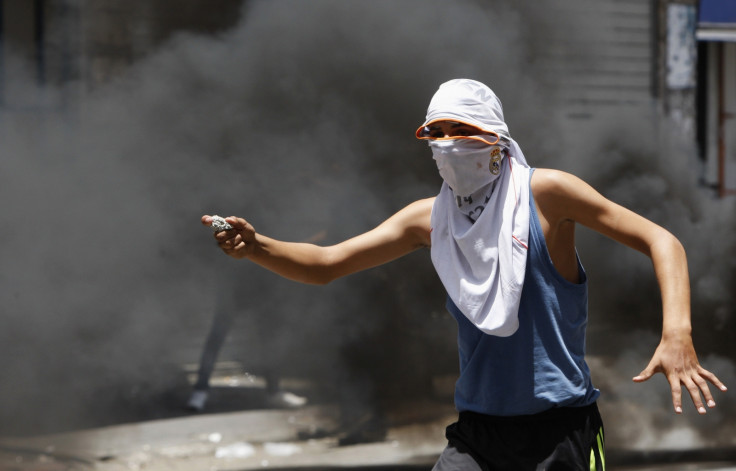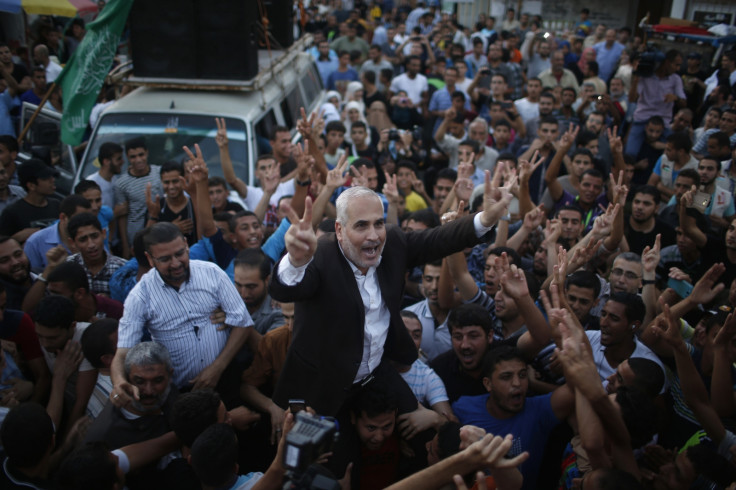Israel confounded by the 'religious intifada' in Jerusalem and the West Bank

The brutal synagogue attack that recently left five Israelis dead at morning prayers marked a peak in violence in Jerusalem. It was the culmination of violence sparked by the revenge killing of Palestinian teenager Mohammed Abu Khdeir in the summer. But extremists on both sides have exacerbated tensions.
Peace is a brittle commodity in Israel's disputed capital. Rioting was rife in East Jerusalem in early summer – much of it unreported. But while policymakers are now focused on whether Palestinians are on the cusp of a third intifada against the Israeli occupation, some instead argue that we are witnessing a new type of struggle. One that is evolving from a nationalist cause to a religious one.
While the headlines are now dominated by the impending Israeli election, the violence is not abating. Just this week, a Jewish Israeli man was stabbed in the Gush Etzion region of the West Bank by a Palestinian woman from a nearby town. It was the same junction where last month an Israeli woman, Dalia Lemkus, was stabbed to death by a Palestinian man, after he had ploughed his vehicle into three soldiers. And two Israelis were stabbed on Wednesday at a supermarket in Jerusalem.
In 2013, six Jewish inhabitants of the West Bank, Jerusalem, and the settlements were stabbed. One stabbing was fatal – a horrific axe attack against a retired IDF colonel. That number quadrupled in the first half of 2014 alone. The number of deadly attacks against Israelis by vehicles, blades or firearms is increasing in frequency.
But what is of real concern to the Israeli government is not the rising numbers, but the increasingly religious nature of the attacks, and the link to Islamic extremism in Syria and Iraq. Hamas, and to a lesser extent Fatah, are fanning the flames of religious incitement. Fatah has described the recent violence as "the war for Jerusalem"; Hamas calls it "the al-Aqsa intifada".
Appealing to disaffected yet technologically savvy Palestinian youth, Hamas produces effective and visually striking images, online comics, animations and videos calling for defence of "al-Haram Sharif". The images are graphic in content, and clearly depict violence towards Jews. While the Israeli government has been riven with internal political wrangling about how to deal with the future of the Temple Mount, Palestinians are constantly reminded of the very real plot in the 1980s to destroy the mosque itself.

The religious nature of both the incitement to violence and the acts themselves has characterised Islamic extremism across the region. That perversion of Islam is now permeating the Israeli-Palestinian conflict. The propaganda deployed by the Islamic State reflects its adulation and zeal for carrying out barbaric terrorism, including the beheadings it has publicly glorified. But historically, Palestinians – with the exception of a radical fringe – do not currently uphold the radical religious ideologies of IS. Yet there is evidence an increasing number have embraced tools used by IS to maximise terror to enlist supporters and activists.
For example, the two largest social media campaigns among Palestinians in Gaza and the West Bank are "Ada'es" (from the word "to run over," which also sounds like "Da'esh," the Arabic acronym for IS) and "Aten" (from the word "to claim," which means "stabbing"). The symbol for "Aten" is a picture of two youths wielding axes.
The terrorists who carried out the synagogue attack did not murder in the name of the Islamic State. Yet there can be no doubt that the pictures and videos were fuelled by that organisation's brand of terror. The addition and emphasis of inter-religious strife to the roots of the Israeli-Palestinian conflict, joining the songs of praise in the Gaza Strip and West Bank for the "shahids" who perpetrated the horror, only add fuel to the fire.
In the bubble of social media, young Palestinians call the terrorist acts in Jerusalem "fedayeen" operations by "the defenders of Jerusalem." They keep their distance from the institutionalised political movements – Hamas and Fatah– that bear the stigma of failure of a lack of achievements over decades.
Hamas, and to a lesser extent Fatah, are fanning the flames of religious incitement.
On Facebook and Twitter accounts across the Gaza Strip and West Bank, President Abbas is presented as a collaborator with Israel. He's called a "traitor" and "the Zionists' dog." Abbas' influence in East Jerusalem is non-existent. There are even social media campaigns calling for his assassination. Abbas is not interested in the outbreak of a violent, terrorism-infused intifada, because he believes it is counter-productive to the Palestinian cause.
Instead, Abbas is pursuing a patient, diplomatic strategy to push for the international recognition of a Palestinian state within the 1967 borders, as part of a binding UN Security Council resolution. His efforts in highlighting Israel's failure to provide freedom of access and worship at the holy sites in Jerusalem is designed to promote that strategy.
But Abbas' political straitjacket is beginning to take its toll. It is increasingly apparent that the PA are losing control of the situation. Under pressure from US Secretary of State John Kerry, Abbas condemned the synagogue attack, but his influence on the Palestinian public is limited and seems to be shrinking.
There are suspicions, too, that Netanyahu's attempt to blame the current escalation in Jerusalem on Abbas has an element of political expedience. The rising number of attacks is trumpeted by Israel as proof of Abbas' reluctance to stop them. Those on the Israeli right believe that, by damaging Abbas' image and status, by accusing him of inciting terrorism, they will undermine the Palestinian political option of appealing to the UN for recognition of a Palestinian state.
So what was a political struggle is becoming a religious one, out of the control of both Israel and the PA. Both parties were to slow to the realisation that the struggle had evolved. But now realisation demands responsibility not to fan the flames of more violence, but show a restraint that has been tragically lacking for too long.
© Copyright IBTimes 2024. All rights reserved.






